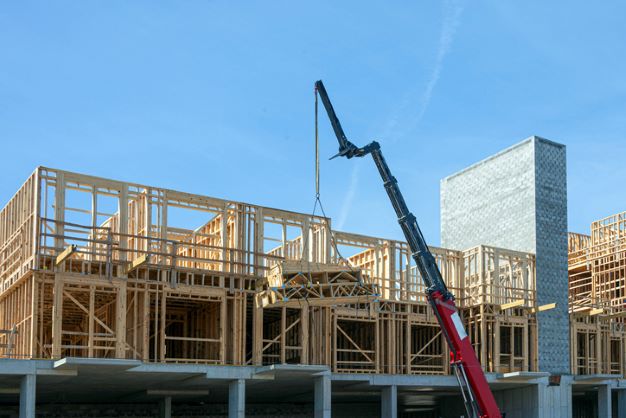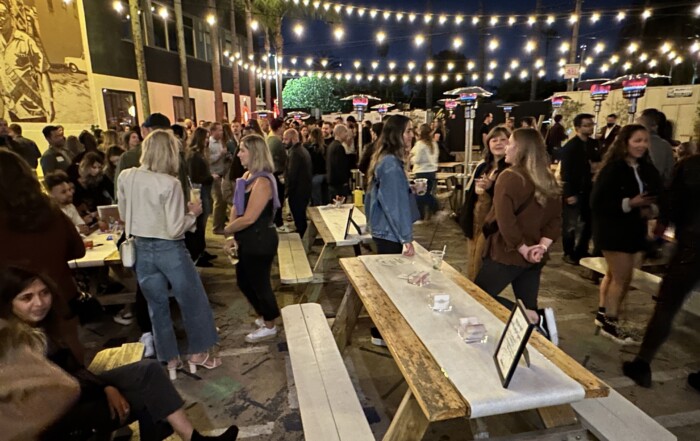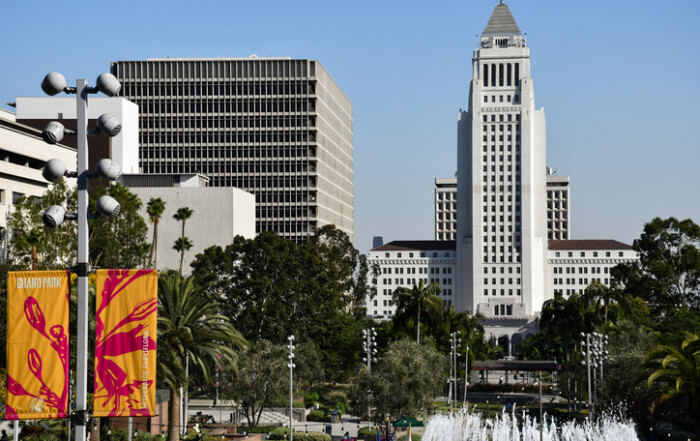A lengthy debate emerged on Monday evening at a meeting of the Culver City Council over whether the city should move forward with a grant application to a State agency called the Strategic Growth Council, whose website states it funds “A range of projects, from building capacity to constructing climate infrastructure.”
The grant would help fund a 95-unit, 100 percent affordable housing project that would be developed at 4464 Sepulveda Blvd., near the site of the Methodist Church on Braddock Drive. If the partner’s application is successful, CCSM and CCMC would receive $35 million in construction capital and programming, and up to another $14 million for bike, pedestrian, and transit infrastructure.
The application represents a partnership between the city, Community Corps of Santa Monica (CCSM) – a non-profit low-income housing provider – and Culver City Methodist Church (CCMC). The city applied last year as well but was unsuccessful, losing out to a project involving the City of Los Angeles and L.A. Metro.
According to Assistant City Manager Jesse Mays, 163 residents submitted comments particular to a new sidewalk around Lindberg Park that would be included in the transit infrastructure, with a mix of supporters and opponents. Mays says the most common comment in opposition were complaints that the sidewalk would mean a loss of greenspace and a desire for the city to focus on other projects. Those in favor spoke to the increased safety a sidewalk would provide for people of all ages and abilities, and the advantage a sidewalk would provide those who want to make a safe loop around the park.
Councilmembers Dan O’Brien and Goran Eriksson both asked if the transit infrastructure identified in the city’s application could be changed in terms of location and make-up. Eriksson was particularly opposed to new bike lanes on Overland Avenue, favoring lighting on an already existing bike path. Mays and Public Works Director Yanni Demitri counseled that some adjustments to the application could be made, but that the Strategic Growth Council would be more friendly to an application that stays with the transit infrastructure as identified and described by staff.
“The purpose of the grant is to establish new bike lanes as opposed to improving, or slightly beautifying – or enhancing – what’s already existing,” said Demitri.
Eriksson remained defiant, saying he couldn’t support the grant given the lessons he took away from the “Move Culver City” Pilot Project that he, O’Brien, and Councilmember Albert Vera helped sink last year.
Mayor Yasmine-Imani McMorrin seemed quite ready for Eriksson, however, pointing to transit goals approved by previous city councils – including a year Eriksson served as mayor – that called for new bike lane infrastructure on Overland. She also praised the voters of Los Angeles for approving Measure HLA on March 5, which will lead the city to build transit infrastructure safer for pedestrians, cyclists, and motorists alike.
“I just want to thank the staff for taking seriously the plans that we set forth and really making sure that we apply for their grants that allow for us to have more safety and mobility in our community,” she said.
Vera implored city staff to embark on an aggressive public outreach campaign regarding the transit infrastructure in part so the public isn’t met with any surprises or dashed expectations once the construction of sidewalks and bike paths is completed. He also inquired as to whether the city could return the money if traffic studies and other input show that the infrastructure in the application is shown to be unworkable. Demitri indicated that “A worst case scenario” if plans change from what’s described in the application would be the state simply withholds that portion of the funds.
About a dozen residents signed up to speak on the issue. Planning Commissioner Stephen Jones told the council that the city needs the 95 units of affordable housing and that saying, “’We can’t have 95 units of affordable housing because I don’t want to build a bike lane’ is not an acceptable answer.”
Declared city council candidate Bubba Fish said he had come with congratulatory comments for the council’s wisdom in seeing the need for affordable housing but was disappointed to see several councilmembers “paralyzed” by the transit investments. Also citing the recent and overwhelming victory of Measure HLA last week in the City of Los Angeles, Fish said “This council is dramatically out of step with the majority of people in our region who want to see active transportation and cycling infrastructure in the neighborhoods.”
Several did comment in opposition to the project, with resident Melissa Saunders calling it “Crazy” to remove a traffic lane on Overland Avenue for a protected bike lane. But the project doesn’t actually do that.
Ross Piro, President of the Lindberg Park Neighborhood Association, said he hadn’t heard much until recently about the proposed sidewalk around the park, saying, “As far as I know, no one’s been hankering for a sidewalk in that area,” though he said he wasn’t opposed to park improvements.
Councilmember Freddy Puza was complimentary of the proposed application and project, saying “It should be an example for all faith-based institutions on how they can live out their mission if it aligns.” He added, “This is a win-win on so many levels, in my honest opinion. It supports our housing goals, sustainability goals, connectivity, our mobility goals, and our safety goals. And this is our opportunity to actualize those goals – to walk the talk and not just give lip service.”
Vera countered, saying, “If this was just about affordable housing I think it would be a no-brainer.” He argued the council has to consider the quality of life for all affected by the proposed projects and seemed to think the loss of some street parking on the Overland corridor was too much. He said once again that more outreach should take place before transit infrastructure improvements are agreed to.
O’Brien asked staff if the application could consider an alternative cited earlier by Stephen Jones, which is to consider Bentley Avenue as a compromise for the sidewalk, rather than surrounding Lindberg Park. The staff said they could look at that as an option.
McMorrin wrapped up her portion of councilmember comments with an impassioned plea to her colleagues to support the application. She repeatedly asked, “I don’t know what it will take?” to earn skeptical colleagues’ support and finally be able to see 100 percent affordable projects come to life. “I know change is hard,” she added, “It is difficult – that’s the thing about equity.”
She also pointed out that people are so tied to their cars because we don’t invest enough in the transit infrastructure that presents viable alternatives, calling the current challenges “a policy choice.”
“This is our job, you all. This is our part…I’m imploring, almost begging, my colleagues to please submit this plan. Please allow us to have neighbors. It is so important now, we have a responsibility. And I really wish we would use this responsibility and just believe in a more abundant Culver City.”
After countering that he feels part of their responsibility is to consider community concerns, Vera then said he would consider supporting the application if CCSM commits to meeting with the residents concerned with the current building design and taking their comments and suggestions seriously. The representative who attended via telephone from CCSM agreed.
The move to accept the application and apply for the grant was approved with the Bentley Avenue option to be considered and a less restrictive bike lane option for Overland Avenue.
The vote was 3-2, with McMorrin, Puza, and O’Brien in support. Eriksson and Vera abstained.
Photo by ribeirorocha on iStockphoto.com
Stay informed. Sign up for The Westside Voice Newsletter
By clicking submit, you agree to share your email address with Westside Voice. We do not sell or share your information with anyone.








